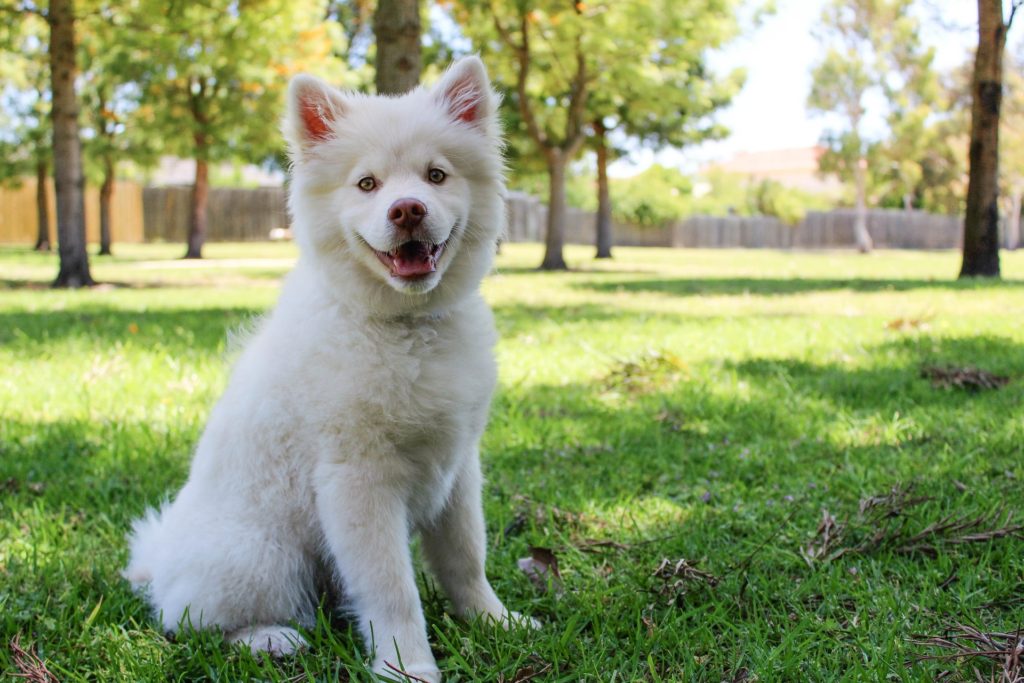
Dogs and cats are curious creatures. They like to explore and get into things. While their sniffing and licking are often harmless, it can become dangerous if they ingest the wrong thing. It is important to be alert to common dangers for pets that may not be dangerous to humans. There are plenty of items you may have around your house and not really think twice about. Even if your pet isn’t one to get into trouble, it is better to be safe than sorry. Store potentially toxic products out of your pet’s reach.
Potentially Dangerous Foods
It can be tempting to let your dog eat whatever scraps hit the floor, or to share what you have, especially if it’s healthy. But not all foods that are good for humans are good for dogs. Here are a few foods to keep away from your pet:
- The pits or seeds of fruits
- Grapes and raisins
- Avocadoes
- Onions
- Garlic
- Macadamia nuts and walnuts
- Chocolate
- Peanut butter that contains xylitol
- Gum (especially if it contains xylitol)
Potentially Dangerous Non-Foods
Other items you have around your house may pose a threat as well. Pay attention when handling these materials:
- Household Cleaners: do not let your pet drink out of buckets or spills. Rinse any surfaces that have had cleaners on them that your pet may lick.
- Rodenticides: if setting out rodent poison, make sure it is in an area your pet cannot access and take caution to keep them away.
- Fertilizers & Pesticides: when applying these products around your yard, keep your pet inside. Don’t let them on the grass for a few days to prevent them from tracking it on their paws and then licking them.
- Medications: avoid the temptation to give your pet medications designed for human consumption such as pain relievers, anti-inflammatories, or anti-depressants unless specifically directed by your veterinarian.
Potentially Dangerous Plants
As you’re sprucing up your yard this spring or summer, or going on walks through the neighborhood, pay attention to the types of plants around you. Eating the petals, leaves, bulbs, or seeds of certain plants can be toxic to your dog:
- Aloe vera
- Azaleas
- Amaryllis
- Chrysanthemum
- Daylily
- Daffodil
- Hibiscus
- Hyacinth
- Hydrangea
- Kalanchoe
- Poinsettia
- Rhododendron
- Sago Palm
- Tulips
Preventing Pet Poisonings
March is Poison Prevention Awareness Month. The first step is being aware of common items that can be potentially toxic for your dog or cat. Store items in tightly sealed containers or out of the reach of your pet. If you are cleaning or working with these products, keep your pet in a separate area so they are safely out of the way. Also, know where your pet is to reduce the risk of them getting into something they shouldn’t.
If you think your pet has ingested something poisonous, contact the Pet Poison Hotline (855-764-7661) or ASPCA Animal Poison Control Center (888-426-4435) immediately.
Give yourself some added peace of mind about your pet’s safety while you’re not around by boarding them at Lake Wylie Pet Resort or signing them up for doggie daycare. Keep them from getting into trouble and know that they’re having fun with their canine friends. Contact us today to reserve a spot for your dog or cat!
